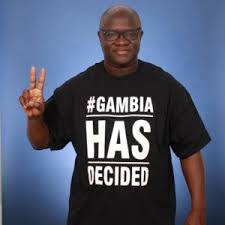I support Banjul-Barra bridge (BBB or 3B or BB bridge)

There cannot be any meaningful and durable social and economic progress or human development in the absence of necessary and relevant public infrastructure. Public infrastructure such as roads, bridges or drainage systems or services such as electricity, internet or waste management services are major drivers of any socioeconomic progress. Hence the idea of bridging the River Gambia between Banjul and Barra is a welcome idea.
The Gambian economy like any other economy needs certain specific ingredients upon which there will be cost-effective and efficient movement of goods, services and people. Topmost among these ingredients are roads and bridges. Given that the country is split into two by a river it is therefore necessary and wise that a bridge is built over that river to connect the two halves of the country.
By connecting the two halves, the country would have reduced travel time and money among other costs and inconveniences on both individuals and businesses hence ease the cost of living.
It will also reduce the burden on the government in providing and operating ferries and all of their attendant costs. Bridging the Banjul – Barra stretch provides the unique opportunity to make the country one big circular entity where one can leave Banjul to travel on the road through the north bank and cross over at Farafeni, Sankulay Kunda or Basse bridges and then return to Banjul without having to wait at ferry crossings.
A bridge over the river between Banjul and Barra will directly impact on the social and economic wellbeing of Banjul as the capital city of the Gambia. It has the potential to revive and transform Banjul into a truly cosmopolitan city with international standing like any other city such as Dakar, Dubai or London. This is because the biggest natural obstacle to the development of Banjul has been the lack of a bridge over that river which inevitably makes Banjul a one-way city hence isolated.
No city is worth its name if entrance and exit in the city is one-way. The ferries that the city depends on lack the ability to make it a competitive city economically and a liveable city socially. This is because ferries have inherent limitations due to their cost in operations and time and volume in service. No city and no country can afford to make ferries a major source of transportation in and out of its capital city and yet expect that capital city and its social and economic life to grow and be exciting. Hence the Banjul-Barra Bridge is necessary and long overdue.
The issue now is about the process to be taken to build this bride and the cost of that bridge and finally the kind of bridge to be built. In terms of process it is necessary that there is utmost transparency in terms of who, what and how decisions are to be taken such as financing, tender and award of contracts among others.
There is need for the National Assembly to take a centre stage in this process to ensure that there is value for money by making sure that there is a transparent procurement, consultative and participatory decision making process. This is what will ensure that the best qualified contractors are hired to deliver the most durable and long-lasting bridge.
In terms of the cost, it is necessary that necessary information about the financing of this bridge is public. Citizens need to know from where the money will be obtained.
Is it a loan or grant or is it funded from locally generated public funds or through a public-private partnership. In this regard how much will the bridge cost the citizen if we are to use it eventually? Will there be tolls or not? These and many questions need to be asked as to the cost of this bridge.
Apart from the monetary cost, we need to also consider the social, economic and environmental cost of this bridge. There needs to be studies to determine its impact on the lives of fisher folks or the small businesses that are directly linked to the ferry terminals.
How will they benefit from the bridge when the ferries are abolished? What environmental impact will this bridge cause not only on Banjul and Barra but also to the rest of the regions and communities within that space and most importantly on marine life? Hence, needless to say, it is necessary that NEA is involved in this project.
Finally there is need to ask about the kind of bridge to be built. Instead of a bridge over the sea why not a tunnel under the sea such as the Euro Tunnel between England and France? Has this been considered or not?
We know that Banjul is the only port in this country hence ocean liners come in and out of Banjul. Therefore has this factor been considered or not so that the bridge does not become a liability by limiting access to the port? There is therefore the need for the designs of the bridge to become a subject of parliamentary and expert scrutiny so that the bridge meets the best designs standards and quality.
In conclusion I think the idea of a bridge is great but it requires serious enquiry to ensure that at the end of the day we are getting a truly durable, appropriate and long-lasting bridge. This project must not be pursued with political expediency just to satisfy political ambitions.
It must not be an illegitimate opportunity for public officials and contractors to plunder public money only to deliver to the people a poor quality, unsafe and inconvenient bridge. We hope the National Assembly, media, CSOs and indeed citizens will exert necessary interest and participation in this project to ensure transparency, accountability and value for money.
For the Gambia Our Homeland.


Comments are closed.